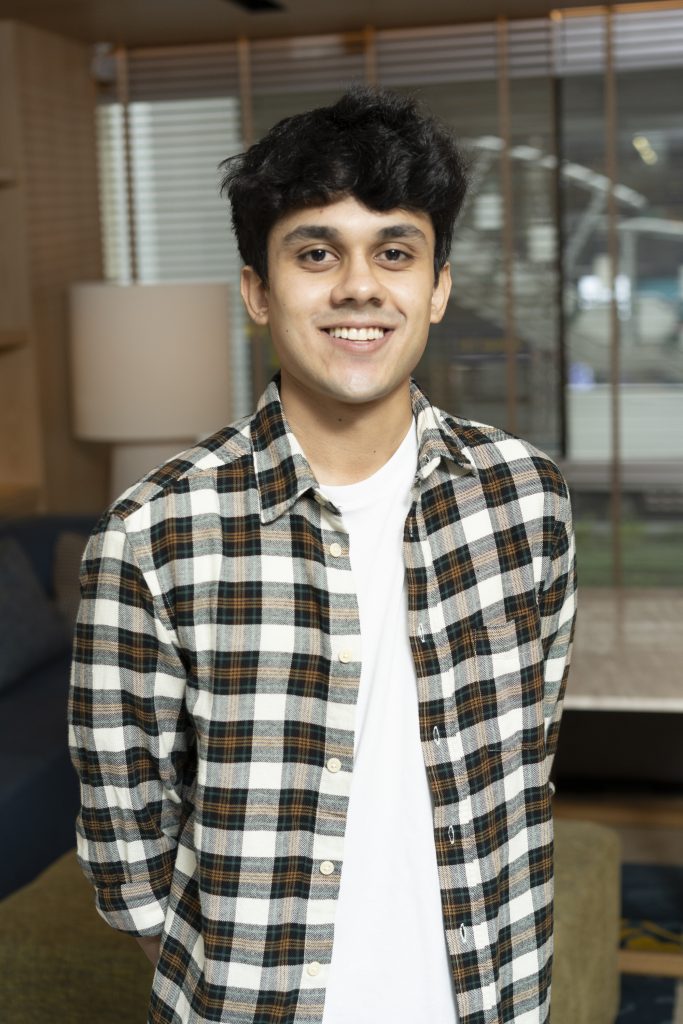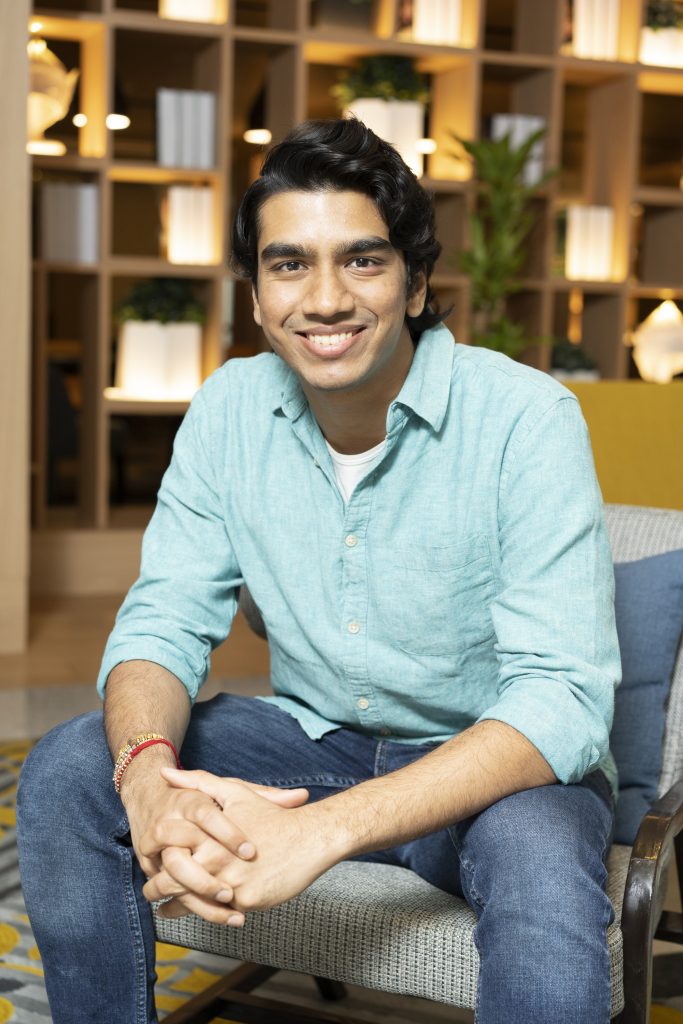Online learning: the new normal or no replacement for uni life?
By Muskan Shah
“Sir, we can’t hear you”; “Miss, you have muted yourself”; “Sorry, my internet is slow”: these are just a few of the myriad phrases we’ve heard during our ‘new normal’. When the pandemic hit, the world came to a grinding halt, and anything face-to-face took a backseat. Just as we teetered on the edge of despair, technology became the new savior, helping us navigate through these times. Unable to reach classes physically, platforms like Zoom, MS Teams, Google and many more were all crowned heroes (well, mine at least)!
As a second-year undergraduate student myself, I can vouch for a fact that if it weren’t for the cornucopia of online resources available, education and I would have been on a break. Nonetheless, all of us still can’t help but imagine what we may be missing out on as virtual courses can’t replace university life. If one thing is for sure, the denouement is that online learning makes for an interesting conversation starter, sparking debates of whether it is the revolutionary future of education or just a phase. Masala interviewed a few students from our own Thai-Indian community, currently studying online, to hear their experiences and insights.
Aryan Shah
Freshman at the University of Washington, Seattle, USA
Starting university is always daunting, let alone doing so online. Fresh off the high school boat, Aryan Shah, who intends on pursuing a Bachelor’s of Science Degree in Psychology, details how the pandemic has interrupted his transition to higher studies.
How have you dealt with the online transition from high schooler to university freshman?
Having to suddenly switch from being physically active to mentally passive was frankly demoralising, as the emotional burden of existing within constraints had to be dealt with systematically. There’s also the additional disappointment of having to wait longer for my freedom as a university student. However, I can recognise the opportunities that await beyond the pandemic.
What aspects of freshman year has your university adapted to ease your learning?
Assignments and exams are a key component to any student’s life and especially as a freshman, organising these deadlines are vital to one’s sanity. I commend my university’s use of platforms like Canvas, Gradescope, WebAssign and Zoom to bolster my academics with vital and easy-to-access resources, as well as the pre-recorded lectures catered to international students so we can watch them in our own time, alleviating the stress of time zones.
This method encourages students to receive a sufficient amount of sleep and subsequently accumulate the motivation, energy and rest needed to study the following day. We were also given the option to complete exams in a designated time limit. Overall, I truly value the flexibility of online learning during this period.
Are you disappointed that you didn’t get the chance to experience the ‘classic’ freshmen year and do you think it’ll be a major hurdle once you’re in the U.S.?
The traditional freshmen experience is one worth remembering for years, but it’s fair to say that we 2020 freshmen have had to redefine the meaning. When I do go to Seattle, it will be a tedious task to adjust into the new lifestyle with the different environmental and social changes. However, I do appreciate the chance to spend more time with family and friends here in Bangkok before leaving.
Vanshika Lakhi
Second-year student at the Fashion Institute of Technology, New York, USA
Majoring in Fashion Design at the acclaimed Fashion Institute of Technology in New York, Vanshika Lakhi talks about her escapades in the battleground of online learning. With a hands-on course that involves cutting, sewing, pattern-making and more, Vanshika misses out on the key features of fashion designing, not having access to essential university-quality equipment. While she appreciates the use of Blackboard to remain connected with professors, the struggles are plentiful. Vanshika shares how she overcomes these hurdles to the best of her ability.
As a Fashion student how are you managing the hands-on practical work?
Online learning has had a big impact on design students like myself, since we rely heavily on practical-based learning. With most of the design classes being on a small scale to include one-on-one interaction with the teacher, the transference
of these lessons online remains inadequate as a whole. However, I’m very thankful for the tutoring programmes my university has provided as extra support, keeping the stress at bay.
How well has your university altered project requirements?
Besides support through online resources, my university has acted as a moral booster. I admire how they’ve switched between decreasing the course requirements for those who may be struggling, while ensuring all the skills are taught for an all-round education, finding the equipoise of online learning. Our professors encourage us to be creative and use whatever materials we can fi nd at home and do the best that they possibly can, which in the end gives us a lot of potential for growth.
To what extent has the time difference caused you to change your lifestyle, and is it for the better?
The biggest obstacle has been the time difference between here and the U.S. With most of my classes ending late at night, it’s very draining to try and keep up with class work at night, while at the same time spend time with my family and socialise with my friends during the day.
Creating a fixed routine has been impossible, but finding a middle ground is important for all of us. Hopefully, this will teach all of us important skills in becoming adaptable to situations like this in the future!
Thanin Sethi
Third-year student at University of Toronto, Canada
Thanin Sethi, a Political Science student at the University of Toronto, delves into his journey of adapting to the online mode as he nears the end of his studies. He shares the light in the darkness in the form of Zoom, the online platform he uses, expressing how the platform “works brilliantly to create a virtual classroom atmosphere.” Taking the situation as a blessing in disguise to help himself grow, Thanin shares his insight.
As the workload increases closer to your final year, how have you had to adapt to this new normal?
The final years of university are often relentless, with students working odd hours, going to new lengths, and pouring their heart into projects. As we students say, “sleep has left the chat,” made worse by the 4am classes I’ve had to attend because of the time zone difference. When reality came knocking on the door, I missed being surrounded by peers hungry for growth as this naturally creates an atmosphere conducive to learning. Online learning omits this aspect, leaving me searching for motivation and having to fi nd ways to remain mentally strong.
Are there particular projects involving group work that have caused difficulties in online communication?
Group work is a large component of university assignments, and it certainly has been a struggle for me to communicate with people, arrange timings for meetings, and find a flow in collaborating. The conundrum is that collaboration gets difficult when group members are scattered across the globe in different time zones. Nonetheless, I believe it’s key to locate improvised solutions and work as effectively as possible.
Have there been any benefits or new doors opening because of this pandemic?
It’s very easy to overlook opportunities amongst the doom and gloom of the pandemic, when our emotional stability needs some caring for. Despite the many moments we may want to forget from this year, an optimistic outlook would be to acknowledge the doors that have opened up for humanity. From the reduction of carbon emissions, to the improvement in personal hygiene, to labourers finally being thanked for their work, the most important thing is that they all encompass how we have been forced to break away from our compulsive lifestyles, giving us an opportunity to reflect and redirect our lives.
Amrita Sachdev
Final-year student at the University of Nottingham (Malaysian Campus)
Studying International Relations at the Malaysian Campus of the University of Nottingham, Amrita Sachdev shares the highs and lows of how the pandemic thwarted her plans of an exchange year in the university’s campus in the U.K., and how she had to reform her plans in order to successfully finish her final year.
What solutions have you sought to deal with the pressure of final year and remaining calm during these difficult times?
With the fi nal year looming above my head, I sought comfort in the arms of organisation and punctuality. While at university, classes become embedded into a routine, but distance learning spins another story that could veer a student off track if one is not organised. To avoid such issues, my main focus is to organise my days with habits like filling out a daily calendar for lectures and deadlines, setting up regular meetings with my supervisors, and taking enough breaks. This ensures the pressure doesn’t bubble.
How have you had to deal with the consequences of your exchange to the UK getting postponed/cancelled?
I was dispirited by the news but had to fi nd a way to overcome it gracefully, and I appreciated my university’s eff orts to accommodate my learning at the original campus. While everyone has had to juggle adapting their plans, I’m glad that my education is unscathed and that the online facilities have helped all of us in the same boat adapt easily.
How effective has your university been in transitioning to more technological modes of teaching?
Nottingham has ensured a smooth transition for the students so that they don’t have to deal with further shock and unpredictable consequences. The hands-on approach of professors, such as extending office hours, creating different platforms of communication for us to contact them easily, and being very understanding towards time-zone differences, has been the epitome of effectiveness in honing in the unparalleled features of technology for online teaching.
Samkit Mehta
Final-year MBA student at the Wharton School of UPenn, Philadelphia, USA
Samkit Mehta, a final-year MBA student at the prestigious Wharton School of the University of Pennsylvania, has embraced this change in hopes of adapting his pathway towards better opportunities. He talks about how he believes in the power of online learning for the better, motivating people to push their limits and embark on a journey of growth.
How have you had to alter your study pathway to accommodate the pandemic?
As the pandemic set in, I had prepared myself to make vital decisions that would accommodate the changing environment. With the university omitting certain classes from the programme, I had to rearrange my course schedule in order to make the best of the academic experience. I also used this time to complete a virtual internship based in Singapore to help me venture into the career world afterwards.
As a final year MBA student, what kind of obstacles have you had to overcome?
Alongside the eleven hour time difference, I’ve had to face the fading existence of a social life in a distanced world. It requires a lot more initiative to schedule video chats with friends and more creativity to find different ways of interacting online. Attending university physically, you’d run into friends everywhere, resulting in natural conversations. But when a school hallway is replaced with an online tunnel of networks, it takes a lot more eff ort to partake in smooth conversations.
With the career market taking a hit, have you simultaneously had to balance the burden of finding a job with classes?
As with my social life, the pandemic has led me to be more proactive in the job search. With the economic downturn in session, job listings on my university website have diminished, forcing students to take initiative in carving out a new path for themselves. However, this time should not be wasted and where one can leverage potential employers, one must.
Photos and video taken at Connexions at The Holiday Inn Bangkok











